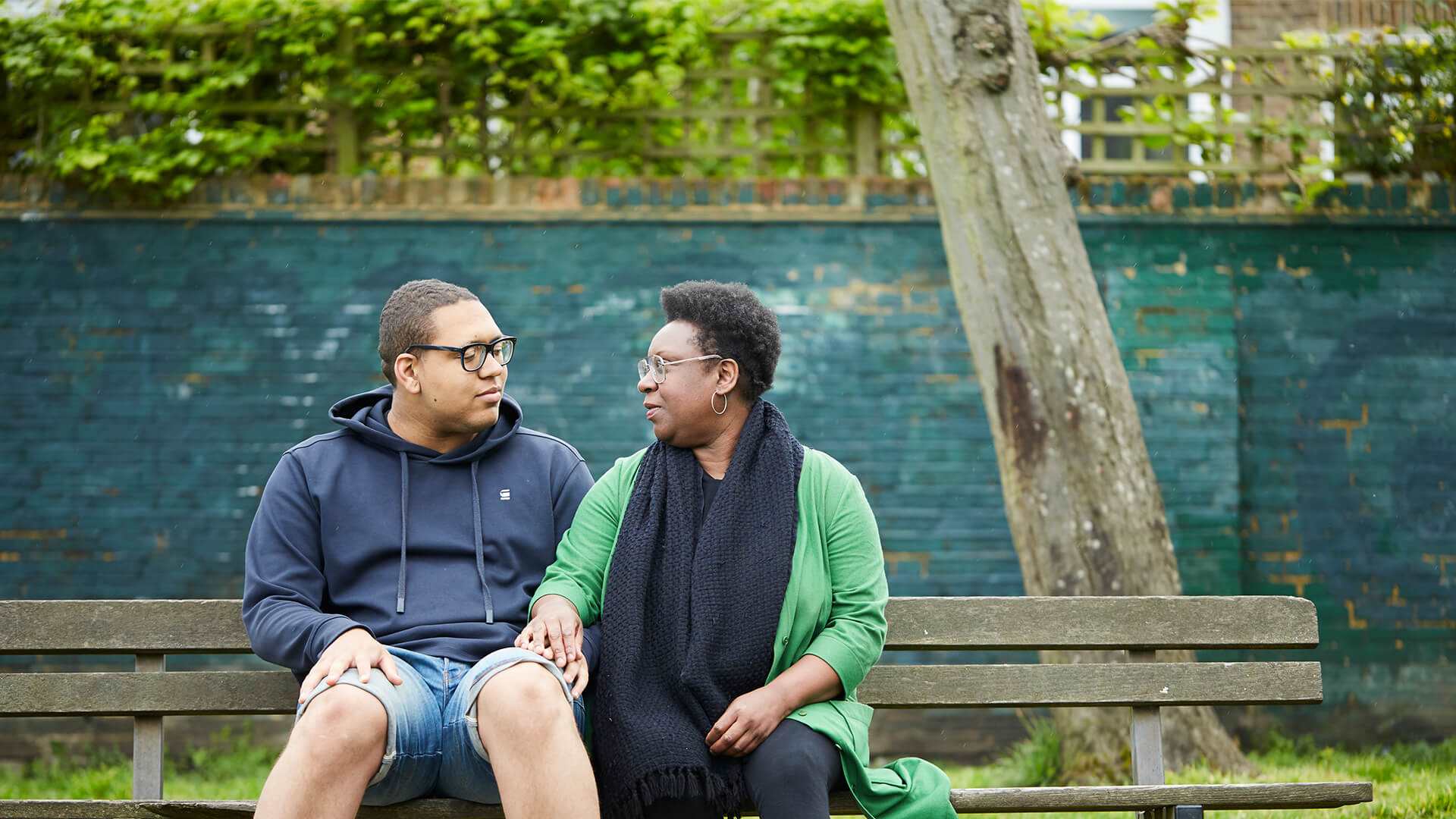Get support from PAPYRUS
The PAPYRUS Hopeline can support you if you’re worried that your child or young person might be experiencing suicidal thoughts. Their advisors will explore your concerns and help you to support your young person’s safety.
Going through different emotions is part of life. While it can feel worrying, it’s normal for a young person to have some down days. This can be part of growing up or a natural response to something that’s happening in their life.
If your child or young person is feeling low, they may seem more flat, tearful or irritable. But usually, they'll start to feel better in a few days or week. You may also notice that their mood lifts after a small change in their life. For example, after resolving a fall-out with a friend or getting to the end of a stressful time at school.
When a young person is feeling depressed, low feelings last longer. This can make it difficult to enjoy things they normally would. It can also start to affect everyday activities like school or work. When a young person is experiencing depression, it’s often difficult to feel better without extra support.
Knowing that your child or young person is feeling depressed can be really worrying. Remember that lots of young people go through this, get help and start to feel better. We’re here to help you support them and find the right help when they need it.

My son had become disconnected from life, and from all those who loved him. ... If any mother out there is experiencing a similar situation, my advice would be, play the mother’s card of unconditional love. It's not your fault, and you cannot control how your child is feeling, but you can have hope that love will win the war over depression.
If you’re worried about your child or young person’s mental health, get professional advice. If they are struggling with depression, they may need professional help to feel better. They may also benefit from a specific diagnosis or treatment.
Some young people who are struggling with depression can experience feelings of no longer wanting to be alive or not being able to go on. This is known as experiencing ‘suicidal thoughts’. A young person can struggle with thoughts of suicide without acting on them. But suicidal thoughts can also develop into a plan or intention to attempt suicide. This means all suicidal thoughts should be taken seriously.
If your child or young person is experiencing suicidal thoughts, it can be incredibly distressing. We’ve got lots of advice about how you can support them and where you can find help in our guide for parents and carers.
If they are having a mental health crisis and they need help now, find out who to contact on our urgent help page.
The PAPYRUS Hopeline can support you if you’re worried that your child or young person might be experiencing suicidal thoughts. Their advisors will explore your concerns and help you to support your young person’s safety.
Supporting a young person who is struggling with depression can be incredibly worrying. It’s completely understandable it’s affecting your own wellbeing. And it’s so important that you get the support you need too. This could include:
This might look like asking someone to help with childcare so you can take a bit of time off. Or it might be meeting a trusted friend for an hour to talk things through.
Many parents find it helpful to talk to others who have been through similar situations. This could be reaching out to a parent you already know, or your local parent and carer forum. Or you might be able to find a local parent group using the Charlie Waller Trust directory.
If you need to, you can ask your GP about local services that provide support such as counselling or therapy. You can also access these services privately if it’s an option for you. Sometimes it helps just having someone there to listen to what you’re going through. If you need talk, you can call the Samaritans anytime on 116 123.
While we take care to ensure that the organisations we signpost to provide high quality information and advice, we cannot take responsibility for any specific pieces of advice they may offer. We encourage parents and carers to always explore the website of a linked service or organisation to understand who they are and what support they offer before engaging with them.
We support parents and carers who are concerned about their child or young person's mental health. Our Parents Helpline provides detailed advice and information, emotional support and signposting.
You can speak to us over the phone or chat to us online.
You can speak to us over webchat between 9.30am and 4pm from Monday-Friday. When we’re closed, you can still leave us a message in the chat. We’ll reply to you by email in 3-5 working days.
Digital support community and charity offering information, peer support, facilitated listening circles, mentoring and courses for parents of children with mental health difficulties.
Founder Suzanne Alderson’s book Never Let Go - How to Parent Your Child Through Mental Illness (Penguin, 2020) outlines how she supported her daughter to recovery after she became depressed and suicidal.
Offers confidential advice and support for young people struggling with suicidal thoughts, as well as family and friends; and information about how to make a safety plan.
Its helpline service - HOPELINE247 - is available to anybody under the age of 35 experiencing suicidal thoughts, or anybody concerned that a young person could be thinking of suicide.

This page was reviewed in May 2024.
It was created with parents and carers with lived experience of supporting their child or young person with depression or low mood.
We will next review the page in 2027.
YoungMinds is a proud member of PIF TICK – the UK's quality mark for trusted health information.